The future is impossible to plot out, but if we are determined, we can forge a path that leads us in a direction we want to go. Such is the case with Phil Manzanera who knew his goal was to play music. Doing just that, in 1972 he found himself being the lead guitarist of Roxy Music. At the time a new band with a future wide open, they would go onto massive success and become one of the most influential bands to come out of England. A dream come true, Manzanera would fit right in, becoming an intricate part of their creative team.
An amazing story, outside Roxy Music, Manzanera has also worked on various other projects with others, as well as solo. A songwriter, guitarist, and producer, he still continues to write his story in 2023 with more music on the way. Recently putting out the experimental soundscape album AM.PM in October. Beyond this, he also continues to work with Split Enz’s Tim Finn as well as his Roxy Music bandmate Andy MacKay on several collaborations. Truly prolific in many ways, the busy Manzanera recently sat down to chat about his career in music, the Roxy Music years, his ideas behind AM.PM, plus much more.
Cryptic Rock – You have been involved in music professionally for five decades now. In that time you have done a lot of really spectacular things; solo, collaborating with others, and of course, with Roxy Music. How would you describe this incredible musical journey?
Phil Manzanera – Well, two words – A blessing. It’s been a blessing. When I was little and I was growing up in South America, Cuba, Venezuela and Colombia… I just fell in love with music. When I listened to what they call the BBC World Service to England, I could hear this amazing music going on.
I asked my parents to send me to England, to the UK. I guess I always wanted to be a musician, even though I pretended to do my studies, play sports, and do all that. My secret desire was music. Like many people of my age, I got swept up in Rock-n-Roll.
When Elvis and Buddy Holly came out, and then the Beatles, I was in London. I managed to get to London when I was like 9 or 10; I was sent to a boarding school. At the time, The Beatles happened. It was just the most exciting thing in the world. It was a… I want to be in a band type thing. I just got lucky. It’s about being in the right place at the right time.
Cryptic Rock – Wow. And you have done a lot of interesting things; a very eclectic body of work. Is that something that you have always had a passion for? Have you always wanted to keep it diverse?
Phil Manzanera – Absolutely. I guess because I love all different kinds of music…. if I had an opportunity to play with different musicians in different areas, I took it. I was not afraid to fail, if you like. I always jump in and try something.
I also speak fluent Spanish, and I think if you speak another language when you’re young, it gives you more empathy about people and about different cultures. Then when you start, you’re lucky enough to be a musician and you travel. There you meet people from different countries where they say, “Hey, wouldn’t it be fun to do something together?” You jump at the chance.
It was great being in a band, but then all of us in Roxy Music started doing solo projects about a year after we started Roxy. We are all still doing it now (Laughs). It’s a life in music, really. It’s 50 years of music.
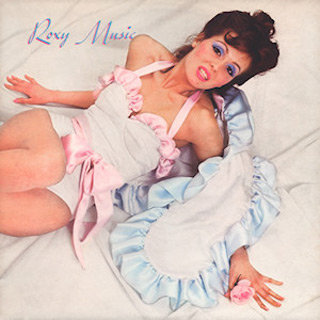

Cryptic Rock – Yes, it is amazing. You mentioned how initially you were determined to be in a band. Obviously, you found that band with Roxy Music.
As you say, beyond Roxy Music, there were solo projects amidst everything. However, the mark that Roxy Music left on popular music is still felt today. The band was so different from everything else that was going on at the time. What was it like being part of that creative space and everything that Roxy Music had accomplished?
Phil Manzanera – It was very exciting. When I joined, I just turned 21. It was like Christmas every day. I went for an audition. I answered an ad in the Melody Maker. They were looking for a guitarist. When I went along and I met Brian Eno, Bryan Ferry, and Andy MacKay, and the bass player at that time, I knew that they were special people. I thought, these guys are different. I thought, they’re something special and I want to be a part of this. I did fail the audition, actually, by the way (Laughs). However, I managed to get in the band six months later. They remembered me; it was like happenstance.
They’re special people. Because I’d grown up in the heart of the ’60s, and knew everything about all bands in England and America, I knew that there was something different about them. Their approach was slightly different. It was made up of a lot of simple elements, but when it all combined together it created something special. That is down to all the different characters in a band. That’s what’s nice about a band. In all the famous bands – whether it’s U2, Pink Floyd, or The Beatles – when they actually work together, sometimes they transcend just one person’s idea.
I think with Roxy, we had the ability to create a musical context for Bryan Ferry’s voice; which was like a weird voice anyway to inhabit. So, we created our own little Roxy world. A lot of bands do that; they manage to create their own sort of sound world, if you like.
Cryptic Rock – Right. And that is a very good point about a band. It is like a melting pot of ideas coming together.
Phil Manzanera – Yes. The nice thing about a band is that it’s that collaboration, that when it works, it creates something better than you could have thought on your own. Obviously, there’s a downside to all bands. Which we’ve seen; starting with The Beatles when they broke up and everything. We all thought, “Hey, bands, that’s great. They last forever.” No, they don’t (Laughs). Then humanity comes in, human relations come in, and invariably it screws everything up.
Cryptic Rock – Unfortunately, that is the way it goes. Roxy Music has done reunions here and there. Most recently, in 2022 the band had a fantastic reunion tour. What was that like doing that?
Phil Manzanera – It was fantastic, actually, for me. We hadn’t played for 10 years. People in America and a lot of the journalists said it was like a victory lap. It was sort of, “Okay, this is what we do. We are able to present ourselves in the best visually attractive way that we’ve ever been able to do.” There was very much a sense of, “This is the last time we will do this. So let’s try and make it as good as possible, and then we’re done.”
That’s really the way we finished in London at the O2 Arena, a sold-out concert. I thought, well, if that’s it, great. It’s done. We will continue looking at music and seeing if we put out anything. But I don’t think there’ll be any more touring.
Cryptic Rock – It sounds like it was exciting for sure and something fans will remember for years to come. Now, you put out a bundle of solo material, as well as collaborations with others. You have collaborated with Andy McKay, as well as Tim Finn of Crowded House and Split Enz. Most recently you have a new record you released with Andy that you call AM.PM. So, what inspired this new collaboration?
Phil Manzanera – Well, as you say, you know we have been working as instrumentalists together on and off for the last 50 years. Like a lot of people during COVID. you’re sitting at home thinking – What shall I do now? One of the things was that Tim Finn got in touch with me from Split Enz/Crowded House and said, “Have you got any songs that we can do?” I’d been working on songs with Tim Finn. The thing about songs is that you’re serving the song and the lyrics. You don’t want to get in the way of the singer too much. I don’t sing on these projects. By the end of it, we’d done 25 songs or something like that, and there will be some more coming out in a couple of months’ time.
I was sort of fed up with that way of working. I wanted to do something completely crazy and anarchic. I wanted something with no structure, no verse, chorus, and middle eights (the way songs have to be constructed). I started doing a little bit of crazy stuff. I emailed Andy and said, “Look, I’m doing some crazy stuff. It’s got no structure or anything. Do you fancy doing something? I told him, “I’ll send it to you. You do whatever you want. Send it back to me” I told him, “I don’t know what it is. I’ve got no idea,” but sent it.
So, we started doing that. Then I started thinking, “Well, wouldn’t it be nice to hear a tuba with my guitar in the mix, and also Andy’s saxophone?” I’ve never heard that before. So, I found a young Tuba player, who was about 18. I saw him play at a Tuba Concerto, actually. I didn’t even know you could do it. I didn’t know that there was such a thing as a Tuba Concerto; you have to be a pretty good musician. I got him in the studio and said, “Just play whatever you want. Improvise for like a minute or two. I’ll make something out of it.” I used that as one source. I did the same with the violinist lady, Anna Phoebe, an electric violin, and the same with a flutist. We made up crazy tracks like that, and this is what it is. It’s like a sort of instrumental album, but not one you’ve heard before.
People have asked, “Well, can you describe it?” I’ve got no idea (Laughs). That is because it seems to change all the time, it was very much coming from a different place of the brain. Not so much like crafting a song, but it was a series of improvisations. It was something that then you try to make sense of and make it a little bit more palatable for people to listen to. It’s very exciting to go on this journey with no particular destination and not knowing where you’re ending up. I’m really pleased with it. It’s not something I could have thought of. It just came out of our two ways of playing.
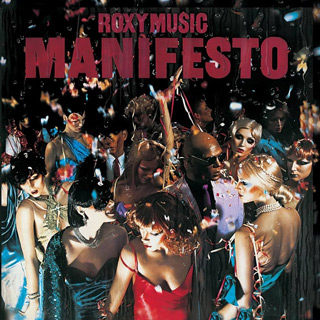
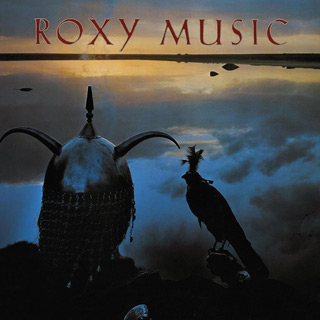
Cryptic Rock – It is difficult to categorize. It definitely has a modern vibe to it, but also a fusion of different styles. Like you said, it’s like a free range of thought in a way. It is a freeing experience for a listener too; because sometimes it’s nice to break away from the structure of the song in the way we know it.
Phil Manzanera – Yes. Over the many years, you’re trying to do something that’s sort of commercial; a hit single or something that has a punchy chorus, etc. This is in a totally different world. It’s almost like what Brian Eno does. He does this sort of ambient music; which it’s very difficult to write about or talk about.
If you’re a writer, you can discuss the lyrics; what the song might be trying to tell you, or the resonance in that. But with instrumental music… it is very difficult to do a review of it. What do you say? This one in particular, it’s sort of like walking on shifting sand at times. I listen to it and think… what is that? That’s why I’m just pleased. It still has me perplexed.
Cryptic Rock – Well, it is very good. It is also refreshing. This type of music is difficult to put into words. It is mostly about human emotion. It makes you feel something, and that is what describes the music.
Phil Manzanera – I think you’re absolutely right. When I listen to Classical music or instrumental music… there are some kinds of music that have a resonance and seem to get inside me. Then again, some do not; it’s just technical or something. But it doesn’t have to be complicated, it can be as simple as anything. It’s amazing how music affects you mentally and physically. All the things that we do – whether people are in a gym or relaxing – having ambient, soothing music helps calm you or helps you get actively moving. It doesn’t always have to have a lyric to it.
Cryptic Rock – One-hundred percent. Sometimes it is nice not to have to sing amidst music. Sometimes it feels like the music is good enough alone and the vocals might get in the way.
Phil Manzanera – Absolutely. I was listening to a podcast with Paul Simon talking about it. He was saying this whole thing about that instrumental music comes from a different part of the brain. He is one of the best lyricists around, but he gets it about instrumental music. Sometimes he will get the music first and not put a lyric on bits of it.
Cryptic Rock – It is very interesting. So, AM.PM is out now. You recorded it in your studio, and it is a follow up to your 2022 that you did with Tim called The Ghost of Santiago. Just some of your more recent works, you have been very prolific!
Phil Manzanera – Well, it’s what we do (Laughs). It’s so nice to be in a job that you enjoy doing; regardless of whether it’s sort of successful or not. You try your best, you want people to like it, but really, you’re doing it because you have to do it. You just want to do it. It’s not onerous, it makes you feel good. We know how music is good for your mental health. And for people who are creating music, it’s extra good, because you get to just drift away. It’s almost like meditating or something. When you’re doing the music, you’re off somewhere else.
I like variety. The thing that we did with Andy, which was more Classical music, called Roxymphony, was just released in November as well again on vinyl. Andy has a very Classical background, and he decided to do an album of Classical-inspired Psalms. Then he was going to put on a concert, but he didn’t have enough material for the first half. So, he said, “Why don’t we do versions of Roxy tracks with an orchestra for the first half?” So that’s what we did. We were surprised that it actually sounded pretty damn good. It was different and a different view. It was an experiment, but we recorded it live. So that’s another kind of music that we do.
Cryptic Rock – So there is a lot going. In fact, you also recently re-released the 1989 Christmas album you did with Andy as well to vinyl and CD. There is something special about physical format music isn’t there? Maybe it is a bit old-fashioned, but there is something ritualistic about putting on a record, CD, or a tape. There is something special about opening the album and looking at the credits and taking in the art. It is part of the listening experience.
Phil Manzanera – It is a very tactile element that you obviously don’t get when you listen to Spotify (Laughs). It is, it’s different. Obviously, we grew up with it when it was the only thing that was available. Then gradually cassettes and CDs were invented, and so on, leading to streaming.
For a lot of younger people, it’s an interesting new experience. That whole ritualistic thing of vinyl and having something tactile to hold with a big cover to stare into. This is instead of nothingness on digital. There are no visual sides to the digital, really. Let’s face it.
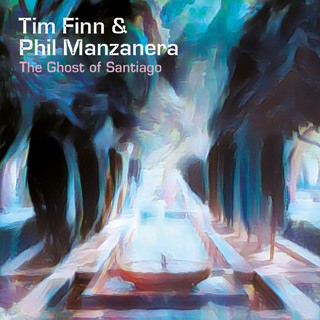
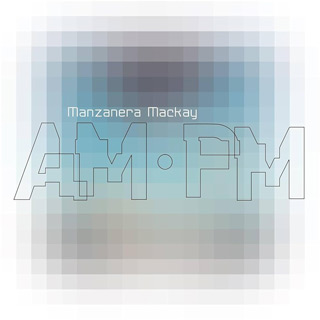
Cryptic Rock – Right, there is no visual. In a modern world, there is a bit of a detachment behind it because you sometimes forget that this was created by someone who put a lot of effort into it. And if it is just instantaneously available for you to listen to it, without even having to work for it, it is less appreciated. For example, many used to save up your money to go to the record store and buy an album as a kid. The instant gratification kind of takes away that appreciation.
Phil Manzanera – I think it does devalue it to a certain extent. I think you’re absolutely right. It’s not that special, because it is like instant gratification. You move on quickly to the next thing. It’s all fast, and sometimes it’s good to just chill, take time, and let it envelop you. I sound like an old hippie there (Laughs). But hey, I recommend it. It’s good for you.
Cryptic Rock – Totally agreed. You talked about working within the frame of constructing Pop songs versus working in a more freeform performance. One can imagine when working within a Pop song structure that there is some pressure on you to want it to be successful. Whereas you are working freeform, it may be more self-indulgent, but honestly purely for the art’s sake. That said, do you find it more liberating working in a freeform opposed to working in a Pop song structure?
Phil Manzanera – When I was growing up in the ’60s, especially from the middle ’60s onwards, there was a big movement towards free playing; whether it was on the West Coast in America, or whether it was Jazz people like Miles Davis, etc. There was something about going on a journey and not knowing where you’re going, but you were trying to achieve something beautiful. There wasn’t such an emphasis on trying to have a hit single and to then sell lots of albums. It was very much about the musical journey that you were on.
That influenced my formative years. This whole idea of being free to do sort of what you want to do and not have somebody come and tell you, like a big corporation or something, “We need a hit single. Otherwise, we’re not going to put any marketing into this.” That is the classic story of what’s been going on for the last 50 years. The whole reason I became a musician was to be free. So, by hook or by crook, I’ve been lucky that some of the things, including things I’ve produced, have been successful. I managed to maintain this sort of freedom to have the ability to record myself. It is now very cheap to do it yourself on a laptop; which I have done with a lot of the stuff in the last few years. But now, there is a way of getting it out where you don’t have to go and ask permission from someone to put it out. You can do it yourself. With this, it really does depend on the quality of the music as to whether it’s successful or not. You can get through to enough people who might like it, and you can sort of do it yourself.
There is a wonderful democratizing side to this whole technological revolution. The only problem now is to get the streaming services to pay musicians more. Especially with new musicians; so that they can afford to pay their rents, live a pretty normal life, and still do music. That is a big thing that’s in my mind… it is the future for young musicians.
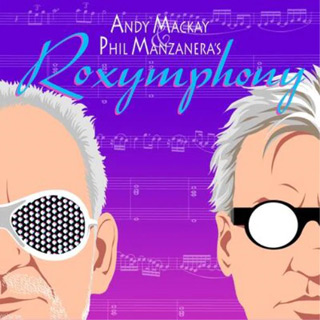

Cryptic Rock – Very good point. There needs to be more monetization for the artist when it comes to the streaming; because they don’t pay much at all.
Phil Manzanera – It really needs legislation. Congress, Senate and Parliamentary; that’s the only way it’ll change. Don’t get me started, because there’s always going to be the big cats and the multinationals who are making billions… you read it every week. There are guys in young bands not being able to pay their rent. So anyway, I won’t go down that rabbit hole. I just hope people enjoy the music.







No comment